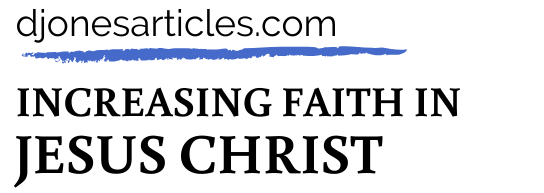“On October 6, in the year 1536, a pitiful figure was led from a dungeon in Vilvorde Castle near Brussels, Belgium. For nearly a year and a half, the man had suffered isolation in a dark, damp cell. Now outside the castle wall, the prisoner was fastened to a post. He had time to utter aloud his final prayer, “Lord! open the king of England’s eyes,” and then he was strangled. Immediately, his body was burned at the stake. Who was this man, and what was the offense for which both political and ecclesiastical authorities had condemned him? His name was William Tyndale, and his crime was to have translated and published the Bible in English. Tyndale, born in England about the time Columbus sailed to the new world, was educated at Oxford and Cambridge and then became a member of the Catholic clergy. He was fluent in eight languages, including Greek, Hebrew, and Latin. Tyndale was a devoted student of the Bible, and the pervasive ignorance of the scriptures that he observed in both priests and lay people troubled him deeply. In a heated exchange with a cleric who argued against putting scripture in the hands of the common man, Tyndale vowed, “If God spare my life, ere many years I will cause a boy that driveth the plough, shall know more of the Scripture than thou dost!”
He sought the approval of church authorities to prepare a translation of the Bible in English so that all could read and apply the word of God. It was denied—the prevailing view being that direct access to the scriptures by any but the clergy threatened the authority of the church and was tantamount to casting “pearls before swine” (Matthew 7: 6 in the bible).
Tyndale Translated the Bible into the English Language
In 1524 he traveled to Germany, under an assumed name, where he lived much of the time in hiding, under constant threat of arrest. With the help of committed friends, Tyndale was able to publish English translations of the New Testament and later the Old Testament. The Bibles were smuggled into England, where they were in great demand and much prized by those who could get them. They were shared widely but in secret. The authorities burned all the copies they could find. Nevertheless, within three years of Tyndale’s death, God did indeed open King Henry VIII’s eyes, and with publication of what was called the “Great Bible,” the scriptures in English began to be publicly available. Tyndale’s work became the foundation for almost all future English translations of the Bible, most notably the King James Version.” (D. Todd Christofferson in the May 2010 Ensign Magazine)
The Holy Bible is a Miracle
“It is a miracle that the Bible’s 4,000 years of sacred and secular history were recorded and preserved by the prophets, apostles, and inspired churchmen. It is a miracle that we have the Bible’s powerful doctrine, principles, poetry, and stories. But most of all, it is a wonderful miracle that we have the account of the life, ministry, and words of Jesus, which was protected through the Dark Ages and through the conflicts of countless generations so that we may have it today. It is a miracle that the Bible literally contains within its pages the converting, healing Spirit of Christ, which has turned men’s hearts for centuries, leading them to pray, to choose right paths, and to search to find their Savior. The Holy Bible is well named. It is holy because it teaches truth, holy because it warms us with its spirit, holy because it teaches us to know God and understand His dealings with men, and holy because it testifies throughout its pages of the Lord Jesus Christ.”
(M. Russell Ballard Remarks in the May 2007 Ensign Magazine)
The Book of Mormon Testifies of the New Testament of the Bible
“And the angel spake unto me, saying: These last records, which thou hast seen among the Gentiles, shall establish the truth of the first, which are of the twelve apostles of the Lamb, and shall make known the plain and precious things which have been taken away from them; and shall make known to all kindreds, tongues, and people, that the Lamb of God is the Son of the Eternal Father, and the Savior of the world; and that all men must come unto him, or they cannot be saved. And they must come according to the words which shall be established by the mouth of the Lamb; and the words of the Lamb shall be made known in the records of thy seed, as well as in the records of the twelve apostles of the Lamb; wherefore they both shall be established in one; for there is one God and one Shepherd over all the earth.” (1 Nephi 40, 41in the Book of Mormon)
How Important is Bible to Each of Us
Do we read the bible on a daily basis or does it lay on the shelf gathering dust? Do we try to keep the commandments the Savior taught recorded in the Bible? Do we treasure it and thank the Lord in our prayers for it?
I recommend that all of us renew our commitment to the Bible by reading and applying its teachings in our lives.
